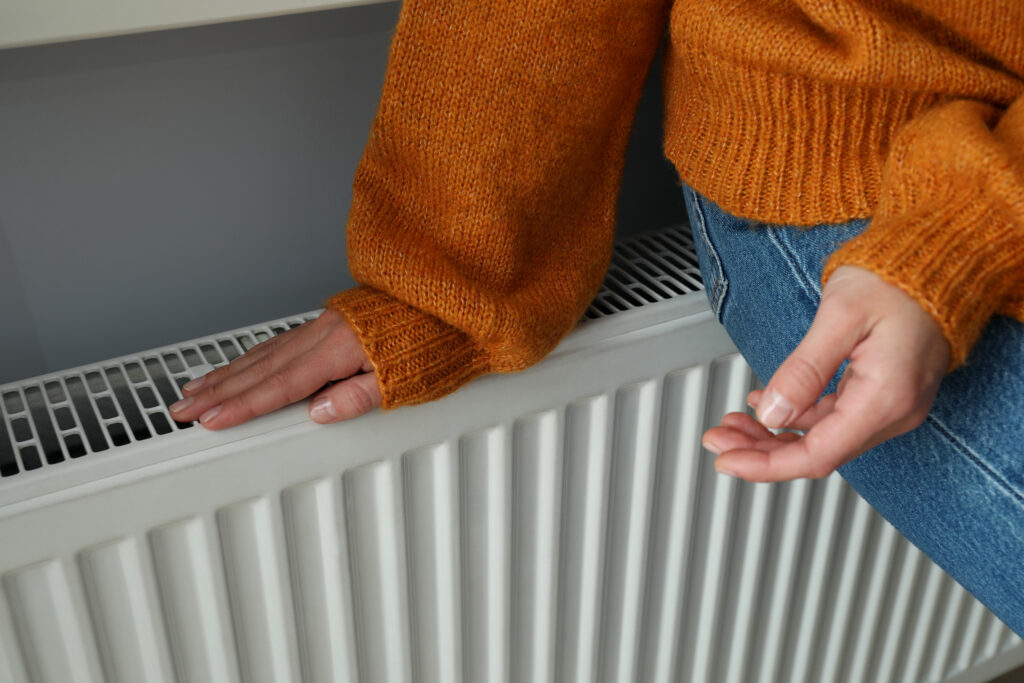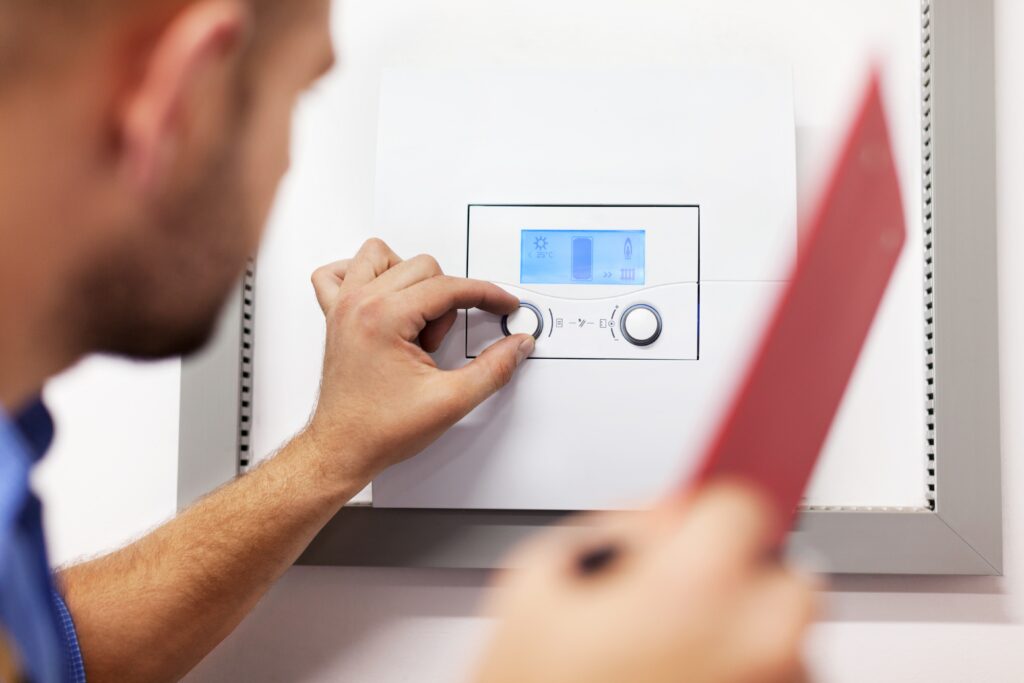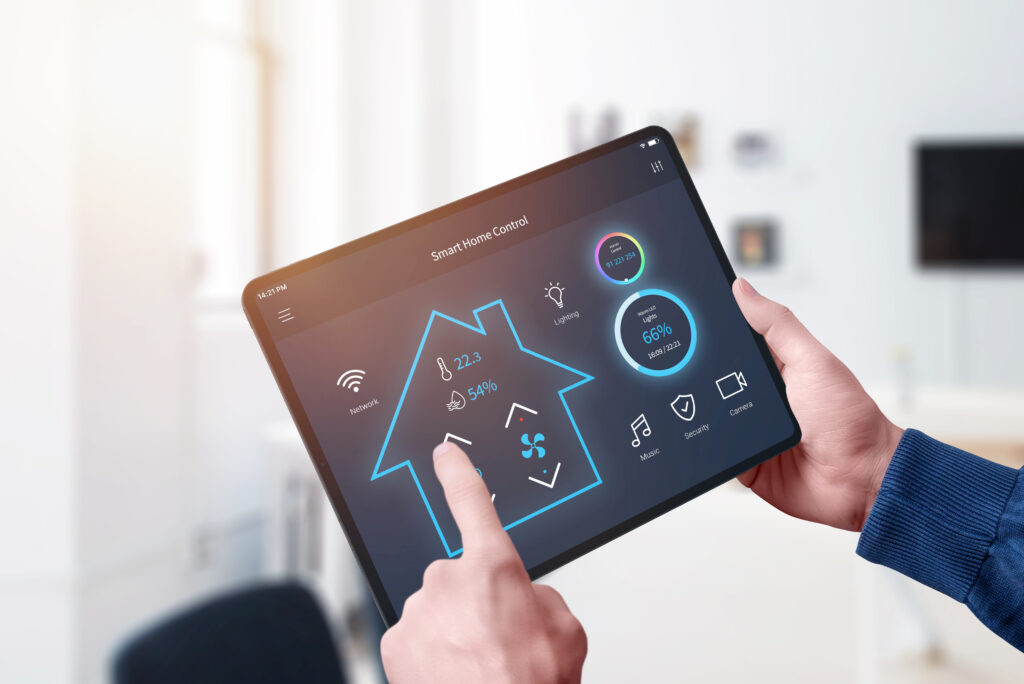Many people hear the term hard and soft water and simply don’t understand what it means or what the difference is between them. As a professional plumber, we have compiled a handy list of answers to some of the most commonly asked questions about hard and soft water.
What’s the Difference Between Hard and Soft Water?
Hard water contains high amounts of dissolved minerals such as calcium and magnesium. This is absorbed when the water comes into contact with rock such as chalk or limestone. Water takes a long journey to get to our homes, so it often picks up minerals along the way. Soft water, on the other hand, contains fewer minerals, leaving the water more in its natural state.
Hard water results from water traveling through mineral-rich rocks, which is common in areas with limestone or chalk geology. It contains high levels of minerals like calcium and magnesium. In contrast, soft water occurs naturally or through treatment processes and contains low levels of minerals. Soft water is preferred for cleaning and reducing buildup in appliances.
Why is Soft Water a Problem for Plumbers?
Soft water, though beneficial for preventing limescale, can pose issues for plumbing systems and equipment. Softened water can increase corrosion rates in certain plumbing materials, such as metal pipes and fittings, due to its higher sodium content. This can lead to leaks or early pipe deterioration if left unchecked. Additionally, soft water is less effective at removing soap residues, which can cause build-up in pipes, further impacting water flow and potentially creating clogging issues over time.
Impact on Boilers and Central Heating Systems
Hard and soft water also have significant implications for boilers and central heating systems, which are crucial components of any household. Understanding how water quality affects these systems can help you maintain their efficiency and longevity.
Hard Water and Boiler Efficiency
Boilers and central heating systems can suffer greatly from the effects of hard water. The high mineral content in hard water leads to the formation of limescale on the heating elements and inside the boiler tank. This limescale buildup acts as an insulating layer, which reduces the efficiency of heat transfer. As a result, your boiler must work harder and consume more energy to achieve the same level of heating, leading to higher energy bills and a greater environmental impact.
Moreover, limescale buildup can cause blockages in the pipes and reduce the overall flow of water through the heating system. This can lead to uneven heating throughout your home, with some radiators getting hotter than others or taking longer to heat up. In severe cases, limescale can cause damage to the boiler’s components, resulting in costly repairs or even the need for a complete replacement.
Soft Water and System Maintenance
In contrast, soft water is much gentler on boilers and central heating systems. The lower mineral content means that there is little to no limescale buildup, which helps maintain the efficiency of the heat transfer process. This not only keeps your energy bills lower but also ensures that your heating system operates more reliably and with fewer interruptions.
Using soft water can also extend the lifespan of your boiler and central heating system. With less wear and tear from mineral deposits, the components of your system are less likely to suffer from corrosion or other forms of damage. This can result in fewer breakdowns and a longer operational life for your equipment.
Preventative Measures and Treatments
If you live in an area with hard water, there are several steps you can take to protect your boiler and central heating system. Installing a water softener can significantly reduce the amount of minerals in your water supply, thereby preventing limescale buildup. Regular maintenance and cleaning of your boiler and heating system are also crucial to remove any existing deposits and keep the system running smoothly.
In addition to using a water softener, consider using chemical inhibitors that can be added to your heating system. These inhibitors help to prevent the formation of limescale and corrosion within the pipes and boiler. They work by creating a protective layer on the internal surfaces, reducing the likelihood of damage caused by hard water.
What Does This Mean for Everyday Water Usage?
When hard water is heated, limescale and deposits can build up in your pipes and appliances. This means things like your shower may need to be cleaned more often, and regular build-up in pipes can reduce the water flow. Hard water also makes soaps and conditioners less effective when they’re used.
Home appliances such as washing machines and dishwashers usually need to work harder in areas that suffer from hard water. If not maintained correctly, your appliance might end up with shorter lifespans. Improving things like the salt in dishwashers can help negate the effect of hard water. More frequent cleaning of showers and faucets is necessary, and the use of anti-limescale products can maintain appliance efficiency. Hard water can lead to higher utility bills due to less efficient appliance operation.
Soft water is generally preferable when it comes to cleaning as it helps things like glassware end up cleaner and reduces the amount of build-up and scum in appliances and showers. People in areas that have soft water generally use less detergent and less energy when using cleaning appliances. Soft water can also be quite resistant to chlorine, which isn’t great news if you’re lucky enough to own a swimming pool.
Soft water requires less soap and detergent for cleaning, and appliances like dishwashers and washing machines run more efficiently, leading to reduced energy consumption. However, soft water’s resistance to chlorine can affect swimming pool maintenance, and it may cause slight taste differences in drinking water.
What Is Healthier?
Both hard water and soft water are perfectly safe to use. Although hard water often tastes better, it can be less effective when used in appliances. Soft water is great for washing hair and a range of other uses but can be resistant to chemicals that are added to the water.
Hard water often has a better taste due to its mineral content but can cause limescale buildup in kettles, creating a brown scum on your tea or coffee. This isn’t harmful but doesn’t look too pleasant. Regular cleaning of appliances and using anti-limescale tablets can help break down limescale and keep your appliances working longer.
Soft water is preferred for tasks like washing hair and general cleaning. However, its resistance to certain chemicals added to water can affect some uses. Soft water is generally more favourable for household chores and appliance maintenance.
Can You Make Hard Water Soft?
There are several ways to make hard water soft. One method is by adding salt to the hard water. As professional plumbers, we believe in helping our customers who suffer from hard water improve the quality of their water and the performance of their appliances. An alternative is to use a conditioner or scale inhibitor. Rather than removing the minerals and replacing them with something else, this alters the water so that minerals pass through the system. This prevents the build-up of limescale, and your water is still safe to drink.
Ion-exchange softeners use resin beads to exchange calcium and magnesium ions with sodium or potassium ions, commonly used in household water softening systems. Salt-free water conditioners use a catalytic media to alter the structure of mineral ions, preventing scale buildup without removing minerals. Reverse osmosis uses a semi-permeable membrane to remove a wide range of contaminants and minerals, producing highly purified water, but it can be expensive and wasteful in terms of water usage.
Conclusion
Understanding the differences between hard and soft water is essential for maintaining your home’s plumbing and appliances. While both types of water are safe for everyday use, they have distinct impacts on cleaning, appliance efficiency, and maintenance. By using water softeners or conditioners, you can mitigate the challenges posed by hard water and enjoy the benefits of soft water.
Whether you live in an area with hard or soft water, knowing how to manage and treat your water can lead to better performance of household appliances, more efficient cleaning, and potentially lower maintenance costs. Regular maintenance and the right water treatment solutions can significantly enhance the quality and longevity of your home’s water system.
Additional Tips for Managing Water Quality
Regular maintenance of your plumbing system is crucial to identify and address any limescale buildup or other issues caused by hard water. Using high-quality detergents and cleaning products designed for use with hard water can improve cleaning efficiency and protect your appliances. Consider installing a whole-house water softener to provide soft water throughout your home, improving appliance performance and reducing maintenance needs. Testing your water regularly to monitor its hardness levels and adjusting your water treatment solutions accordingly is also important.
By taking these steps, you can ensure that your home’s water system remains efficient, clean, and free from the problems associated with hard water. Whether you choose to use a water softener, conditioner, or other treatment method, understanding and managing your water quality is key to maintaining a healthy and functional household. Contact the team at Heat-Tec for more information.






